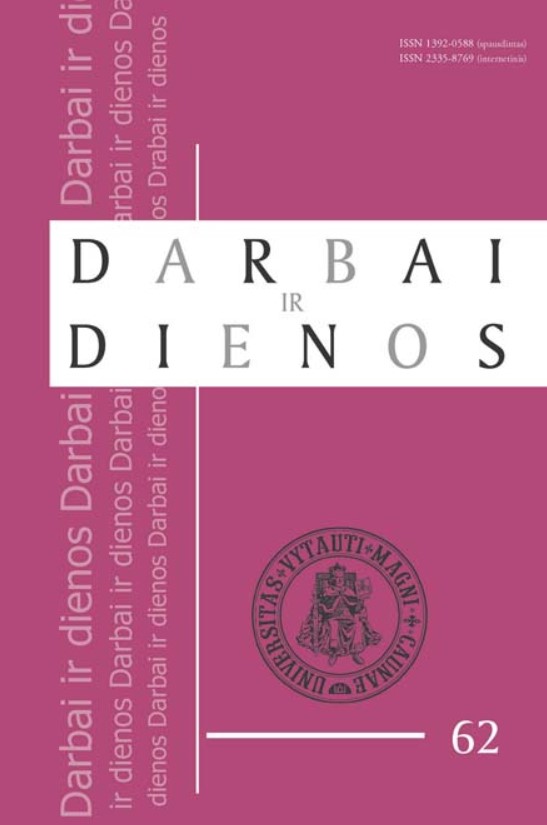NE UŽ TOKIĄ LIETUVĄ DĖJOME PARAŠĄ: ISTORIJOS POLITIKA POSOVIETINĖSE LIETUVOS KULTŪRININKŲ TRAJEKTORIJOSE
WE SIGNED UP FOR A DIFFERENT LITHUANIA: POLITICS OF HISTORY IN THE POST-SOVIET TRAJECTORIES OF THE LITHUANIAN CULTURAL INTELLIGENTSIA
Author(s): Vilius IvanauskasSubject(s): Political history, Government/Political systems, Political behavior, Politics and society, Post-War period (1950 - 1989), Inter-Ethnic Relations, Politics of History/Memory
Published by: Vytauto Didžiojo Universitetas
Keywords: politics of history; totalitarianism; ethnicity; cultural elite; analytical category; post-Soviet period; Soviet system; adaptation; blame; empire;
Summary/Abstract: Soviet history becomes a multiple resource for recognizing or defining the contemporary threats to Lithuania as well as leading to specific strategies. All this combines (1) the successful experience in the demolition of the Soviet system; (2) the perception of an ongoing Cold War; and (3) the escalation of a sense of blame for the Soviet period. By applying discourse analysis, this article reveals some dominating post-Soviet trajectories of those Soviet Lithuanians working in the field of culture who participated in the national revival. The analysis shows how a few key analytical categories (totalitarianism, ethnicity) are practically exploited in these trajectories and how they influence the growing usage of the politics of history in the Lithuanian public sphere. Ethnic mobilization activities engaged in during Soviet times by some intelligentsia members became favorable criteria for engaging in the national revival movement at the end of the 80s. Capital conversion, being the face of changes or even being the moral authority (for example, Justinas Marcinkevičius or Vytautas Landsbergis) apparently legitimized their authority and the cultural leaders‘ exclusive right to articulate the foundations of a new system or to openly criticize the weakening Soviet system. The national question for a time overlapped with the ideas of a free market and liberalism. Today we observe the process of trying to move away from the dominance of the liberal path, calling it the wrong trajectory on which to proceed in the post-Soviet period (“we fought for different Lithuania”). This re-positioning includes a wide range of Soviet intelligentsia members who were also part of Sąjudis. This new position shares a critical approach towards Western influence. Their rhetoric evokes parallels with the past (e.g., the old empire has been replaced by a new empire; a new center is aspiring to greater power, etc.). Their cultural-social capital provides them with the legitimacy to articulate emerging political threats and gives them an opportunity to become saviors again and to use their know how of the 80s in a new situation. However, these cultural leaders not only pose challenges but also face them. A neoconservative line actively emphasizes the responsibilities of cultural leaders who once served the Soviet system and demands that this fact be appropriately evaluated in contemporary society. This line uses ‘totalitarianism’ as a practical category, aiming ro reveal the ‘evil empire’ and calling for a preventive strategy against current Russian imperialist designs. It also sees the “self-centered” trajectories of former Soviet cultural elites as inadequate in the context of geopolitical rivalries and growing tensions between the Russian world and U.S. allies. In this perspective the “ethnicity” category is seen as promoting localism and preventing rapid westernization. The neoconservative line also attempts to correct the development of Lithuanian liberalism by criticising the latter‘s too strong enagagement on behalf of the right to individual self-expression and too little regard for collective engagement.
Journal: Darbai ir dienos
- Issue Year: 2014
- Issue No: 62
- Page Range: 209-227
- Page Count: 19
- Language: Lithuanian

